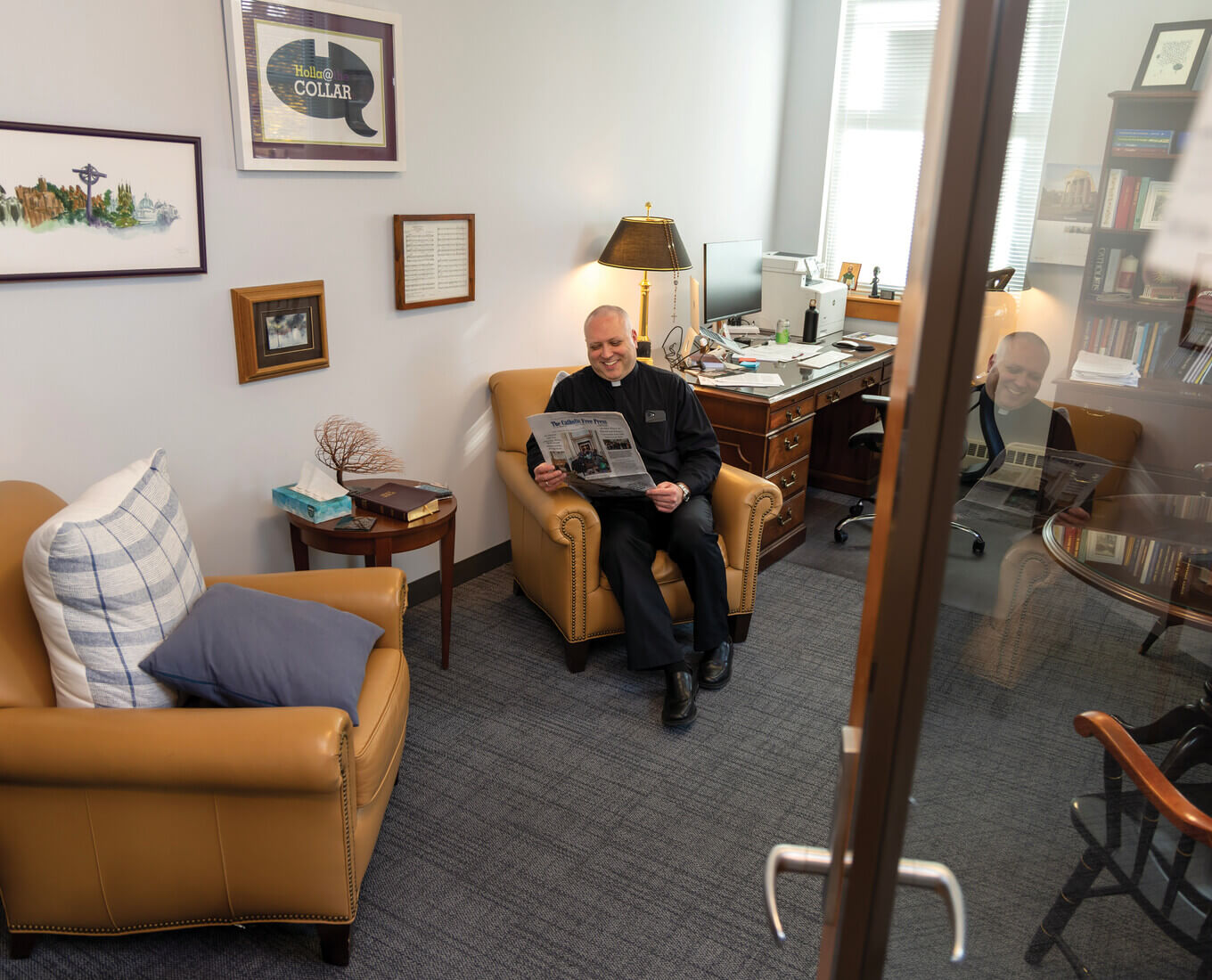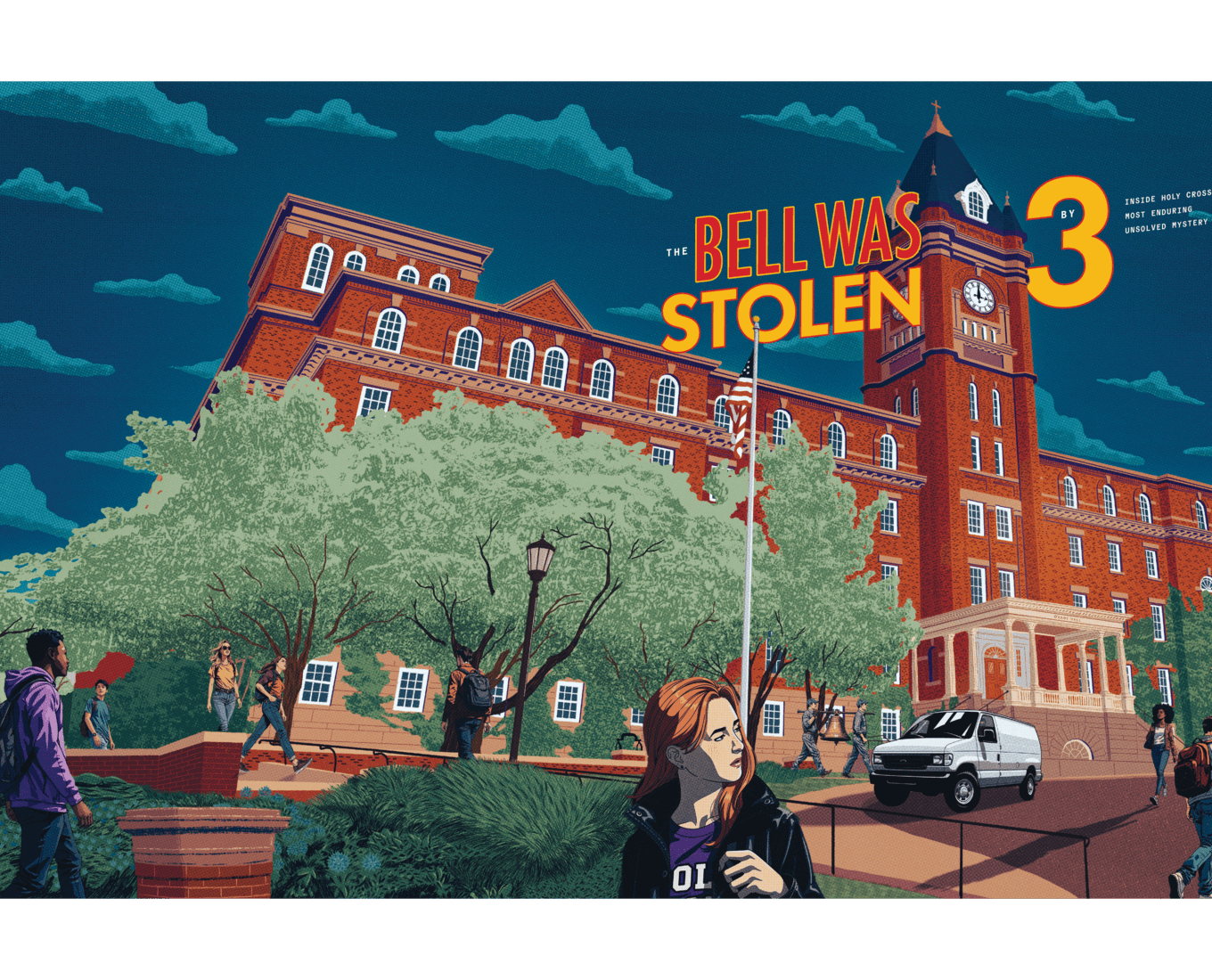 Close your eyes. Imagine what it was like in 597 B.C.E., at the beginning of the Babylonian Exile.
Close your eyes. Imagine what it was like in 597 B.C.E., at the beginning of the Babylonian Exile.
During this time, Babylonian forces attacked the ancient kingdom of Judah and exiled its upper classes: the king, his court, nobles, artisans, priests, and merchants, among others. These Judahites were forcibly transported and scattered across Mesopotamia, where they were forced to deal with questions of identity, having been separated from Jerusalem, their religious and cultural center.
What was a Judahite’s Exile experience like? How could Judahites remain loyal to their God — the God who promised them land and posterity but had been seemingly vanquished, with promises left unfulfilled?
These are just a couple of the questions that Matthew Cortese, a senior religious studies major from Mattituck, N.Y., is currently addressing in his thesis. He will present his work at the Student Academic Conference on April 25 at 11:30 a.m. in the Hogan Campus Center.
The idea blossomed when he was just a freshman.
During his first year, Cortese was introduced to the Exile through Introduction to the Old Testament, taught by religious studies professor Fredrick Murphy. Simultaneously, through his First-Year Program course Awakening the Spirit, Cortese sought the mentorship of Alice Laffey, associate professor of religious studies.
It was also during this time that Cortese began his involvement in various campus activities, mainly those focused around music and spirituality. He is a member of the College Choir and Pax Christi, a Chaplains’ intern for liturgy and music, and a student leader of the Contemporary Ensemble, a group of student musicians that play at the College’s 7 p.m. masses.
When asked why he was so drawn to the topic of exile, Cortese responds: “This theme is still relevant today.” He says exile is something that we all experience in our lives.
“People today suffer from exile due to political, economic, racial, and religious factors: refugees, migrants, expatriates. But a larger audience experiences exile on an emotional and spiritual level, if not a geographical or political one,” he says.
During his junior year abroad at Trinity College in Dublin, Ireland, Cortese came up with the premise for his thesis.
“I could have written an academic article, but I decided that I wanted to write something that many people across the disciplines could relate to and appreciate,” he says. So Cortese created the character Elijah, a temple musician in his early 20s. Instead of writing an extensive historical essay, Cortese decided to compose a 50-page historical fiction story revolving around Elijah and his experience as an exiled Judahite.
Writing an average of one scene per week, Cortese’s story takes readers to an imaginative place that combines both Biblical texts and extensive historical research.
In addition to concentrating on biblical texts (especially the book of Ezekiel and 2 Kings), Cortese also sifted through commentaries, as well as history books and articles about daily life and political events in 6th-century Judah and Mesopotamia.
“Many people know something about the Exile from readings at church or synagogue, but know little about its historical background and the huge effect it had on Judaism, and consequently on Christianity. I wanted to present the event in a way that would be easily accessible and formative,” he says. “Ultimately it comes down to allowing yourself to interpret religious texts based on your own social location, informed by history and historical criticism.”
With this in mind, Cortese looked to Professor Laffey for assistance on how to convey these past stories as they apply to people today, while also remaining historically accurate. “Her outlook and our personal relationship has been the catalyst for this paper,” he says. Cortese also credits Susan Elizabeth Sweeney, associate professor of English, for her constructive criticism in the process of revision.
In August, Cortese will begin a year with the Jesuit Volunteer Corps Northwest, working with Providence Hospice’s Transitions Program in Seattle.
By Cara Joyce ’09
For Cortese ’09, Freshman Year Religious Studies Course Sparks Interest in Babylonian Exile
Course work, study abroad, co-curricular activities influenced idea for thesis
Read Time
3 Minutes

